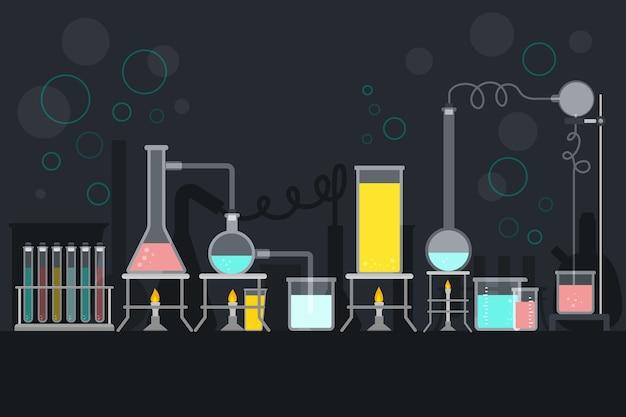The world of science is vast and complex, filled with various terms and concepts that can sometimes be confusing. One such term is the “outcome variable.” If you’ve ever conducted a scientific experiment or read a research paper, chances are you’ve come across this term. But what exactly does it mean?
In simple terms, the outcome variable is the variable that researchers measure or observe to determine the effect of an independent variable. It is also known as the dependent variable, as its value depends on the changes made to the independent variable. Think of it as the end result, the outcome of the experiment.
In this blog post, we’ll dive deeper into the concept of the outcome variable and explore its significance in scientific research. We’ll also discuss related terms such as constant variables, predictor and criterion variables, as well as the difference between independent and predictor variables. So, let’s unravel the mysteries of the outcome variable together!

What is the Outcome Variable in Science
Scientific research often involves studying the relationship between different variables. In this subsection, we’ll take a closer look at one essential aspect of scientific experimentation – the outcome variable. Understanding this fundamental concept is crucial for interpreting research findings accurately and drawing valid conclusions.
Defining the Outcome Variable
The outcome variable, also known as the dependent variable, is the key element in any scientific study. It represents the response or result that researchers measure or observe throughout their investigation. In simpler terms, it’s the variable that scientists are trying to explain or predict. If the world of science were a reality TV show, the outcome variable would be the superstar everyone’s rooting for.
The Outcome Variable’s Role
Just like the main character in a movie, the outcome variable plays a vital role in scientific experiments. It’s the one being influenced or affected by the independent variable, which scientists manipulate to observe its impact on the outcome. The relationship between the outcome variable and the independent variable is like a complex dance routine – they need to be in sync for the research findings to make sense.
Examples of Outcome Variables
Outcome variables can take on different forms depending on the nature of the study. Let’s look at a few examples to better illustrate this concept:
Example 1: Testing a New Drug
In a study testing the efficacy of a new drug, the outcome variable might be the reduction in symptoms experienced by the patients. Researchers would measure variables like pain levels, inflammation, or any other measurable indications of improvement to determine the drug’s effectiveness.
Example 2: Investigating Exercise and Weight Loss
For a study examining the relationship between exercise and weight loss, the outcome variable could be the number of pounds lost by participants. Researchers would track changes in weight over the duration of the experiment to determine whether exercise has a significant impact.
Example 3: Assessing the Effects of Education
In a study evaluating the effects of education, the outcome variable might be the test scores of students before and after an intervention. By comparing pre and post-test scores, researchers can gauge the impact of the educational program on students’ knowledge and performance.
Think of the outcome variable as the star of the show. It’s the variable that researchers focus on to analyze the impact of their study’s manipulations. Understanding the outcome variable’s role and how it relates to the independent variable is crucial to interpreting research findings accurately. So next time you’re reading a scientific paper, keep an eye out for the outcome variable – it’s the one stealing the spotlight!

FAQ: What is the Outcome Variable in Science
What is the constant variable
The constant variable, sometimes referred to as the controlled variable, is a factor that remains constant throughout an experiment. It is not subject to change and is used as a baseline reference for comparison with other variables. For example, in a study on the effects of temperature on plant growth, the constant variable may be the amount of water and sunlight provided to each plant.
What is the outcome variable dependent variable in this experiment
The outcome variable, also known as the dependent variable, is the variable that is measured or observed in an experiment. It is the variable that researchers are interested in understanding or predicting the effect of the independent variable on. In the plant growth experiment, the outcome variable could be the height of the plants, which is measured after subjecting them to different temperature conditions.
What is a predictor and criterion variable
A predictor variable, also called an independent variable, is a variable that is manipulated or controlled by the researcher in an experiment. It is used to see if changes in this variable have any influence on the outcome variable. On the other hand, a criterion variable is the variable that is being predicted or estimated based on the values of the predictor variable(s). This relationship is commonly seen in regression analysis or predictive modeling.
What are the two response variables
In scientific research, there can be multiple response variables depending on the nature of the study. However, if we consider an experiment where two variables are being observed or measured, these two variables can be referred to as response variables. These response variables are the outcomes or results that researchers are interested in analyzing. For instance, in a study on the effects of a new drug, the two response variables could be the reduction in pain levels and the improvement in mobility.
What is the difference between an independent variable and a predictor variable
While the terms “independent variable” and “predictor variable” are often used interchangeably, there is a subtle difference between the two. An independent variable is a variable that is intentionally changed or manipulated by the researcher to observe its effect on the outcome. On the other hand, a predictor variable can also be manipulated by the researcher, but it is specifically used to predict or estimate the value of the outcome variable.
What is an example of a manipulated variable
A manipulated variable, also known as an independent variable, is a variable that is intentionally changed or controlled by the researcher. It is manipulated to observe its impact on the outcome variable. For example, in a study on sleep patterns and productivity, the manipulated variable could be the amount of sleep participants receive. The researcher can manipulate this variable by randomly assigning participants to different sleep duration conditions and then measure their productivity levels.
What is the difference between the predictor variable and the criterion variable
The predictor variable and the criterion variable are part of regression analysis or predictive modeling. The predictor variable, also called the independent variable, is used to predict or estimate the value of the criterion variable. The criterion variable, also known as the dependent variable or outcome variable, is the variable that is being predicted or estimated. Basically, the predictor variable helps to determine the value or behavior of the criterion variable.
What does independent variable mean in science
In science, an independent variable refers to the variable that is changed or controlled by the researcher to see its effect on the outcome variable. It is the variable that the researcher wants to study or manipulate in order to understand how it influences or affects other variables. The independent variable is intentionally changed to observe and measure the resulting changes in the dependent variable(s).
What is the outcome variable in science
The outcome variable, also called the dependent variable, is the variable in an experiment that is measured or observed to understand the effect of the independent variable(s) on it. It is the variable that researchers are interested in studying or predicting based on the changes made to the independent variable(s). The outcome variable is the variable that can change depending on the manipulation of the independent variable(s).
Remember, understanding and identifying the different variables in an experiment is crucial to conducting meaningful research and drawing accurate conclusions. So, next time you encounter scientific jargon like independent variables, outcome variables, or predictor variables, you’ll know exactly what they mean!
